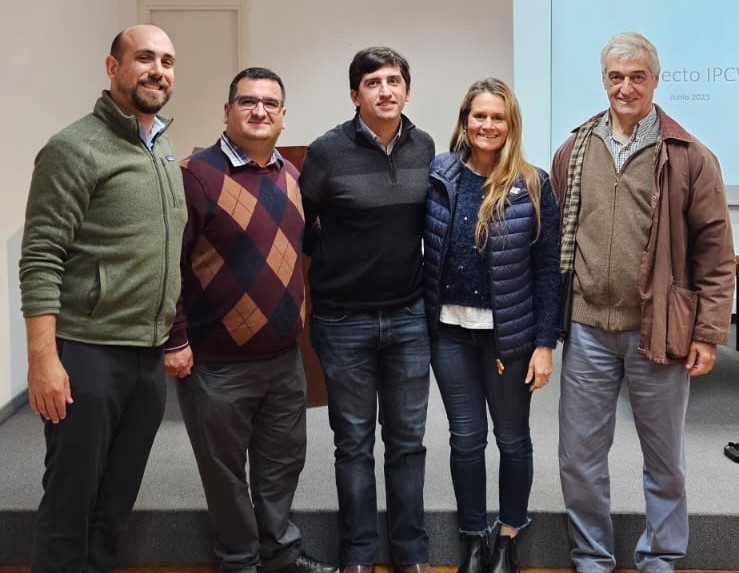Crossbred cattle as a response to climate change

Victor Funes-Leal is a doctoral student in the Department of Agricultural and Consumer Economics (ACE)
This past summer I traveled to Argentina for a project supported by the ACES Global Food Security Fellowship program to present the first results of a research project on the adoption of crossbreed cattle as a response to climate change and to design a survey that will gather data on cattle ranchers.
Cattle ranching has been displaced from the Pampas into hotter and drier areas of Northeastern Argentina due to rising land prices. Historically, Argentinean cattle ranchers have bred Angus and Hereford cattle because of the quality of their meat, but those breeds are native to Europe and, thus, adapted to temperate climates. Consequently, several crossbreeds have been introduced to preserve meat quality while improving the animal's ability to withstand heat stress, mainly by crossing these breeds with Brahman bulls, native to Northern India.
I worked with Nicolas Gatti, an ACE alum, and Ignacio Amario from INTA (Argentina’s Institute for Agricultural Technology) to gather and analyze data from cattle auctions to establish what bull characteristics cattle ranchers demand depending on how much they paid for an animal. Establishing which cattle traits are most demanded by cattle ranchers is essential because it will allow us to establish if they are related to climate adaptation. We found that cattle ranchers prefer animals that can gain weight quickly, have lighter coat colors, and are younger. The first two traits are directly related to climate adaptation to hotter climates. We also found that ranchers do not appear to demand bulls with better genetic traits; we concluded that this results from a lack of information about how they are measured and what their values imply.
Our next step is to develop a specific type of survey, called a “choice experiment,” that consists of asking ranchers about different combinations of traits and recording how they change the rancher’s willingness to pay for an animal with these characteristics. We expect to uncover how much climate-resilient traits are valued by ranchers and how this information can be used to direct the selection of future generations of cattle. My advisor Jared Hutchins, assistant professor in ACE, and I also presented our research at the INTA offices in Buenos Aires, including our article on the adoption of crossbreeds, as well as two other ongoing research projects we are working on currently.
The main lessons from our research are:
- Cattle ranchers value cattle that possess certain traits that help them adapt to hot and dry weather.
- Significant room exists to improve productivity in the beef cattle industry by breeding animals with lighter coat colors.
- A significant lack of information exists concerning how genetics can help ranchers determine which bulls should be selected for breeding.
I want to thank the ACES Office of International Programs for awarding me this fellowship that helped me complete a part of my PhD dissertation. I would also like to thank my advisor Jared Hutchins and my coauthors who helped me throughout the entire process.